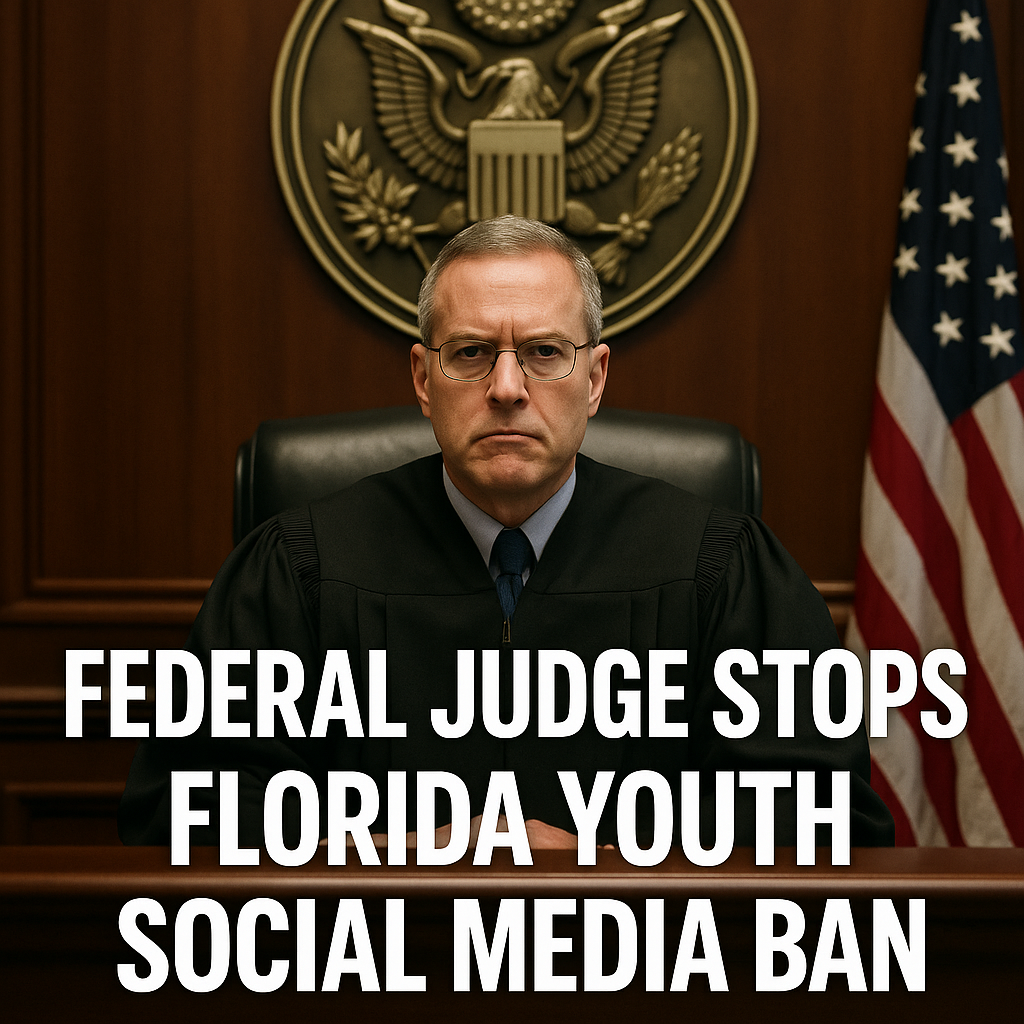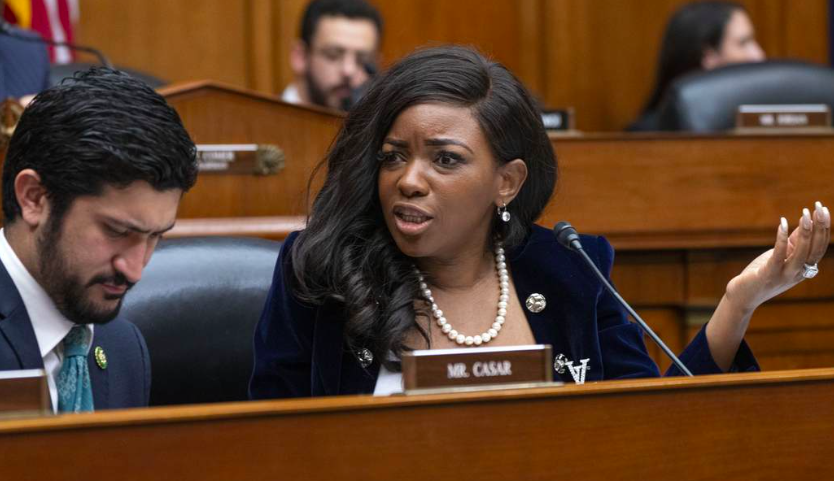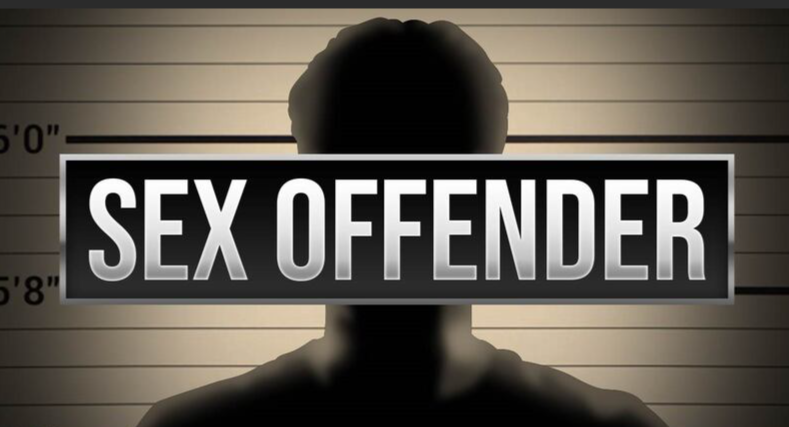Federal Judge Stops Florida Youth Social Media Ban
A federal judge on Tuesday blocked a key provision of Florida’s new law aimed at restricting social media access for minors. The ruling represents a setback for Governor Ron DeSantis’ administration and its push to protect children from harmful online content while challenging the growing influence of Big Tech over family life.
The law, set to take effect on July 1, would have prohibited children under 14 from holding accounts on major social media platforms, and required parental consent for 14- and 15-year-olds. The bill, passed with strong Republican support, aimed to curb the addictive nature of platforms like TikTok, Instagram, and Snapchat, which many parents and experts believe are contributing to a youth mental health crisis.
U.S. District Judge Allen Winsor issued a preliminary injunction against the law, ruling that it likely violates the First Amendment. The challenge was brought by NetChoice, a tech industry trade group whose members include Meta (Facebook, Instagram), TikTok, and Snapchat. The group argued that the legislation infringes upon free speech rights and unfairly burdens internet companies.
“Despite the State’s valid interest in protecting children, the law isn’t narrowly tailored and suppresses a wide range of constitutionally protected speech,” wrote Judge Winsor, a Trump appointee. He stated that while the law seeks to address genuine concerns, it fails to do so in a manner consistent with constitutional protections.
Governor DeSantis and Republican lawmakers have framed the legislation as a necessary shield for children growing up in a digital landscape saturated with manipulation, exploitation, and content that undermines traditional values. “Social media harms children in ways we’ve never seen before,” said Florida House Speaker Paul Renner during debate on the bill. “This law puts parents back in control.”
Supporters of the law have expressed disappointment in the court’s decision. “This ruling is a win for Big Tech and a loss for families,” said one conservative commentator. “Parents are fighting to raise their children in a culture that no longer shares their values. Now the courts are telling them they can’t even protect their kids from being groomed online.”
The state argued that social media use among youth is linked to depression, anxiety, and even suicidal ideation. Citing Surgeon General advisories and psychological studies, Florida’s legal team insisted that the law addressed a clear and present danger. But Judge Winsor said the state’s arguments did not overcome the constitutional bar required to limit speech.
The injunction does not strike down the law permanently but blocks its enforcement while the case moves forward. Florida Attorney General Ashley Moody’s office is expected to appeal, and Republican leaders have signaled their commitment to seeing the legislation through, possibly even revising it to withstand further legal scrutiny.
Critics of the ruling are calling for renewed efforts to pressure Congress into taking federal action on youth social media use. “This issue transcends state lines,” said a policy analyst with a conservative family values organization. “If the courts won’t let states act, then we need national standards to limit social media access for children. The tech companies won’t regulate themselves.”
NetChoice, the plaintiff in the case, celebrated the decision as a victory for constitutional rights. “Florida’s law was a blatant attempt to silence speech and restrict lawful internet access,” said Carl Szabo, NetChoice Vice President. “The court rightly recognized that the government cannot dictate what information Americans — including teenagers — can access online.”
But many conservatives see NetChoice’s reaction as further proof that tech companies are more concerned about protecting their user base and profits than about shielding minors from harm. “It’s easy for Silicon Valley to celebrate when they’re profiting off kids’ screen addiction,” said one parental rights advocate.
The ruling comes amid a broader national debate over tech regulation, with several red states attempting to pass laws limiting youth access to online platforms. Arkansas, Texas, and Utah have each passed similar measures, most of which are also facing legal challenges. Federal lawmakers have proposed legislation, but partisan gridlock has stalled any serious reform.
The Florida case may now set the tone for future legal battles. While the First Amendment remains a high bar, many conservatives argue that public safety and parental rights should outweigh corporate interests. “We don’t let kids smoke or drink,” said Rep. Tyler Sirois, R-Merritt Island, who co-sponsored the bill. “Why should they be exposed to content that’s just as damaging?”
As the case proceeds, Florida Republicans are vowing to keep fighting. “This isn’t over,” said Speaker Renner. “We’ll continue to push for laws that defend our families, protect our kids, and challenge the unchecked power of Big Tech.”
For now, though, the courts have spoken — and Florida parents hoping to see tighter social media restrictions for their children will have to wait.






